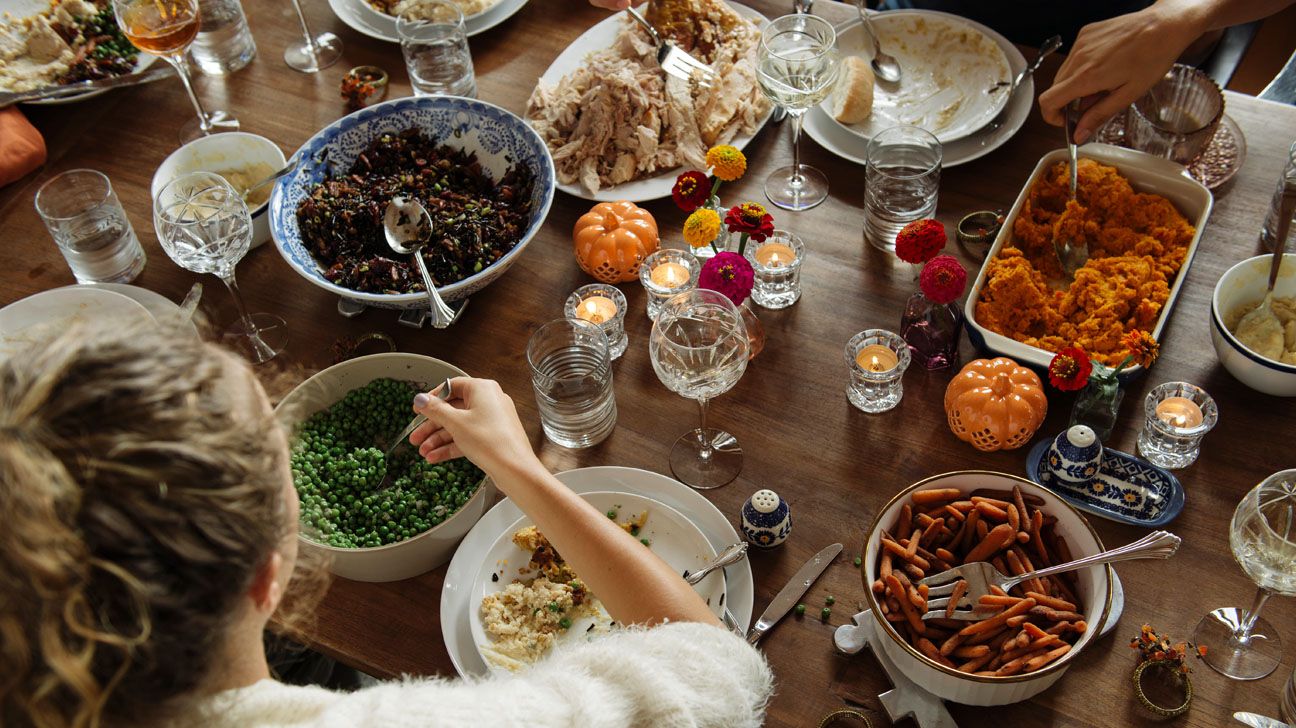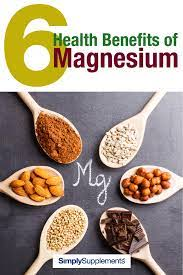
- Eating certain foods can exacerbate GI discomfort and other common side effects associated with GLP-1 weight loss drugs like Ozempic and Wegovy.
- Navigating holiday meals can be challenging as they often include many of these foods, such as high fat, greasy, and sugary items.
- Health experts say it’s essential to understand what foods might worsen the side effects of the medication so that you can approach the holiday with strategies to minimize severe discomfort.
Thanksgiving is a time for family, (parade) floats, and, let’s be honest, food.
“Thanksgiving is all about food, eating, and over-indulgence: Turkey, stuffing, sweet potatoes, and pumpkin pie,” says Chris McGowan, MD, a gastroenterologist, obesity medicine specialist, and the founder of True You Weight Loss. “For many, eating to the point of discomfort is the highlight of the holiday and a way of showing appreciation to the host and chef.”
But McGowan says that, for the hundreds of thousands of people taking GLP-1 weight loss medications like Ozempic, Wegovy, Mounjaro, or Zepbound, the eat-until-you’re-full-and-then-get-seconds approach may present physically painful challenges.
These medications are associated with common side effects like nausea and vomiting, which can intensify when a person consumes certain foods, including high fat, high-sugar items that are often front and center on Thanksgiving tables.
“As we approach the food-centric holiday season, it’s essential to understand which foods might worsen the side effects of anti-obesity medications,” McGowan says.
Healthline spoke with McGowan and other obesity medicine specialists, who shared their tips for which Thanksgiving foods are the least likely to trigger side effects and which ones are best to limit or avoid for people taking weight loss drugs.
How GLP-1 drugs can affect appetite and tolerance for certain foods
GLP-1 medications are a class of antiobesity and antidiabetic drugs, semaglutide (Ozempic and Wegovy) and tirzepatide (Zepbound and Mounjaro). They can help people lose significant weight, but they can also change how a person tolerates certain foods.
“GLP-1 medications mimic the GLP-1 hormone, which is produced in the small intestine. This hormone regulates blood sugar levels, appetite, and digestion,” says Michael L. Glickman, MD, a triple board certified family and obesity medicine physician who founded Revolution Medicine. “The medication helps with weight loss by slowing digestion and increasing satiety. This helps reduce food portions.”
Portions are generally large on Thanksgiving, but that’s not the only potential pitfall for people taking drugs like Ozempic.
“Thanksgiving favorites, which tend to be high in sugar, carbohydrates, and unhealthy fats, can be more likely to cause gastrointestinal issues when they stay in the stomach longer,” Glickman says.
GI issues, like nausea and vomiting, are common side effects associated with GLP-1 drugs, so consuming these foods can either trigger or worsen them, explains Mir Ali, MD, a board certified general surgeon, bariatric surgeon, and medical director of MemorialCare Surgical Weight Loss Center.
Thanksgiving foods to avoid on Ozempic, Wegovy, and similar drugs
First, it’s important to note that there is no specific “Ozempic diet,” and you can still enjoy all your favorite Thanksgiving dishes in moderation.
“It’s perfectly fine to enjoy all of Thanksgiving’s tastes and flavors, but be mindful of portions and keep the heavier foods to a minimum,” McGowan says.
Ali says greasy, fried, sugary, high carb, calorie-dense foods take a while to digest. Because of this, they may be more likely to trigger uncomfortable side effects.
According to McGowan, some Thanksgiving staples that fit this bill include:
- Stuffing
- Candied yams (often doused in butter, sugar, and marshmallows)
- Green bean casserole (often heavy in cream and fried onions)
- Mashed potatoes with gravy
- Pecan pie
- Canned cranberry sauce (often high in sugar)
- Macaroni and cheese
Ali also advises people to be mindful of alcohol consumption.
“Alcohol contains a large amount of carbohydrate calories and can cause more nausea and reflux,” Ali says.
Ali also adds that foods affect people differently, so it’s critical to tune into your body.
Thanksgiving foods least likely to cause side effects on Ozempic, Wegovy
The holidays can feel emotionally nourishing — and they can be physically, too.
“For many, the holidays represent an important time for family and social gatherings and celebrations,” McGowan says. “It’s important to continue enjoying the season’s positive aspects without triggering troublesome or potentially dangerous medication side effects.”
Glickman suggests prioritizing foods like lean proteins, fiber, and non-starchy vegetables.
Glickman and McGowan said the meal’s star, the turkey, fits that bill if it’s roasted.
McGowan says some other foods include quintessential Thanksgiving menu items like:
- Roast vegetables like oven-roasted carrots, parsnips, and Brussels sprouts
- Homemade cranberry sauce using a recipe that minimizes sugar
- Sauteed or steamed green beans
Tips for managing Thanksgiving while taking GLP-1 drugs like Ozempic
McGowan recommends taking time before Thanksgiving to reflect on details like the menu, guest list, location, and potential challenges.
“Anticipating these scenarios can help you stay in control and enjoy the day,” McGowan says.
The following simple tips can help you manage potential challenges during holiday meals.
Don’t skip meals
Glickman and McGowan say “saving” calories by ditching or severely limiting food intake ahead of a Thanksgiving meal is a common mistake for people trying to lose weight or maintain weight loss. It can backfire.
“Skipping meals will only lead to excessive hunger and overeating,” McGowan says.
Glickman suggests prioritizing breakfast on Thanksgiving morning.
“Start your day with a healthy high protein and fiber breakfast and lunch,” Glickman says. “This will prevent you from starting Thanksgiving dinner with 10/10 hunger and limit overeating.”
Bring a food you’re excited to eat
Food is more than fuel for the body — it’s about taste, socialization, and memories. Hearing about the foods you “can’t eat” or “can’t have much of” ahead of a food-centered holiday like Thanksgiving can feel like a downer, especially if you aren’t the host or handling the cooking.
McGowan says you can avoid this pain point by adding some favorite dishes to the Thanksgiving meal that you know you’ll enjoy from a taste and lack of side effect perspective.
Strategize the meal
Glickman recommends starting the meal by filling your plate with whole foods like veggies, whole grains, and lean proteins before adding smaller portions that can worsen GLP-1 side effects. Then, eat the nourishing foods that are less likely to cause discomfort first, like protein-rich roasted turkey and fiber-packed veggies.
“This will also help with satiety,” Glickman says.
Savor the meal
“Eating slower allows time for the sensation of fullness to become more apparent and helps avoid overeating,” Ali says.
McGowan says it also helps you enjoy the whole experience of the meal, including family, friends, and flavors.
Go for a post-meal walk
Glickman says heading out for a walk following a meal is useful.
“Going for a walk within 30 minutes of your Thanksgiving meal helps with motility, improves digestion, and limits insulin spikes,” Glickman says. “Walking after large meals can be a useful tip to help stay on track with your weight loss journey.”
Avoid leftovers
“Once-a-year” foods can become more than that because of leftovers.
“Keep Thanksgiving to one meal,” McGowan says. “If you are hosting, send your leftovers with guests. If you’re a guest, either decline the leftovers or take them home and toss them.”
Takeaway
If you’re taking a GLP-1 medication like Ozempic, Wegovy, Mounjaro, or Zepbound, eating certain foods can trigger common side effects such as nausea, bloating, and diarrhea.
Navigating holiday meals can be challenging as they often include many of these foods.
Health experts say it’s essential to understand what foods might worsen the side effects of the medication so that you can approach the holiday with strategies to minimize severe discomfort.
Experts say eating foods like lean proteins (including roasted turkey) and fiber-rich foods like roasted vegetables may be best to prioritize, while it’s a good idea to limit foods that are high in fat, carbs, and sugar.

